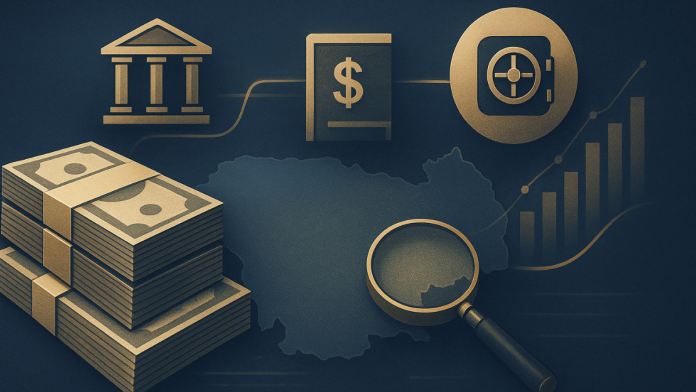A large business group in Cambodia, called the Prince Group, is now under serious suspicion. Authorities believe that the group may be holding billions of Korean won in funds linked to criminal activities.
According to official records shared with South Korean lawmaker Rep. Kang Min-guk of the People Power Party, the Prince Group kept about 9.12 billion Korean won in deposits across local branches of South Korean banks that operate in Cambodia.
These banks include well-known names such as Kookmin Bank, Jeonbuk Bank, Woori Bank, Shinhan Bank, and IM Bank. In total, these banks handled 52 transactions with the Prince Group, amounting to 19.7 billion won.
The biggest chunk of money came through Jeonbuk Bank’s Cambodian branch. It recorded 47 term deposits worth about 12.1 billion won. Even after several withdrawals, a large amount — more than 9 billion won — is still sitting in the accounts.
Money-laundering storm engulfs Toronto-Dominion Bank, shaking Canada’s image of financial stability
Suspected Links to Serious Crimes
The Prince Group is being accused of more than just moving money. Investigators believe that the organization is connected to criminal networks operating across Cambodia. These networks are said to lure or kidnap foreigners, including South Koreans, and force them into online scams and voice phishing crimes.
Victims of these scams are often trapped in guarded compounds and made to commit online fraud under threats or violence. Reports from several countries have linked such compounds to organized crime rings that make huge profits from illegal activities.
The Prince Group, led by its chairman Chen Zu, is suspected of being one of the financial powerhouses behind these operations. Authorities believe the money kept in the South Korean banks’ local subsidiaries could be the proceeds of these crimes.
To make matters worse, the governments of the United States and the United Kingdom have already taken strong action against the Prince Group and Chen Zu. They have imposed sanctions, accusing them of being involved in human trafficking and large-scale fraud.
Now, South Korean officials are looking into whether any local financial systems were used to hide or clean the group’s illegal earnings.
South Korea’s Financial Watchdogs Step In
The growing concerns have pushed South Korean regulators to take a closer look at the issue. The Financial Intelligence Unit (FIU) and the Financial Services Commission (FSC) are now reviewing ways to impose sanctions on individuals and organizations tied to Cambodian criminal groups.
They are checking whether these deposits break anti-money laundering (AML) laws and whether any parts of the funds can be frozen or seized.
Rep. Kang Min-guk has urged financial authorities to coordinate with the Cambodian government to block and recover what he described as “dirty money”. He emphasized the need for stronger international cooperation to prevent criminals from using local banking systems to hide or transfer illicit funds.
Irvin C. Francois III pleads guilty to CARES Act fraud and money laundering in New Orleans
The issue highlights how organized crime in one country can spread through global banking systems, making it hard to track where the money comes from or where it goes.
Authorities are now working to identify the full scale of the financial network linked to the Prince Group. They are also checking whether bank employees followed proper reporting procedures when handling these suspicious transactions.
At the moment, the funds remain frozen in accounts across four South Korean bank branches in Cambodia:
- Kookmin Bank: about 5.66 billion won
- Jeonbuk Bank: about 2.68 billion won
- Woori Bank: about 702 million won
- Shinhan Bank: about 64 million won
The fifth bank, IM Bank, previously managed transactions but currently shows no active deposits from the group.
Financial authorities continue to gather evidence to confirm whether these accounts were used for money laundering or other illegal financial movements.
The discovery of the Prince Group’s multi-billion-won deposits has sparked shock and concern among regulators and the public. It paints a worrying picture of how global banking systems can be exploited by criminal organizations.
As investigations continue, the focus remains on uncovering how such a large amount of suspected “dirty money” ended up in trusted financial institutions — and what can be done to stop it from happening again.


